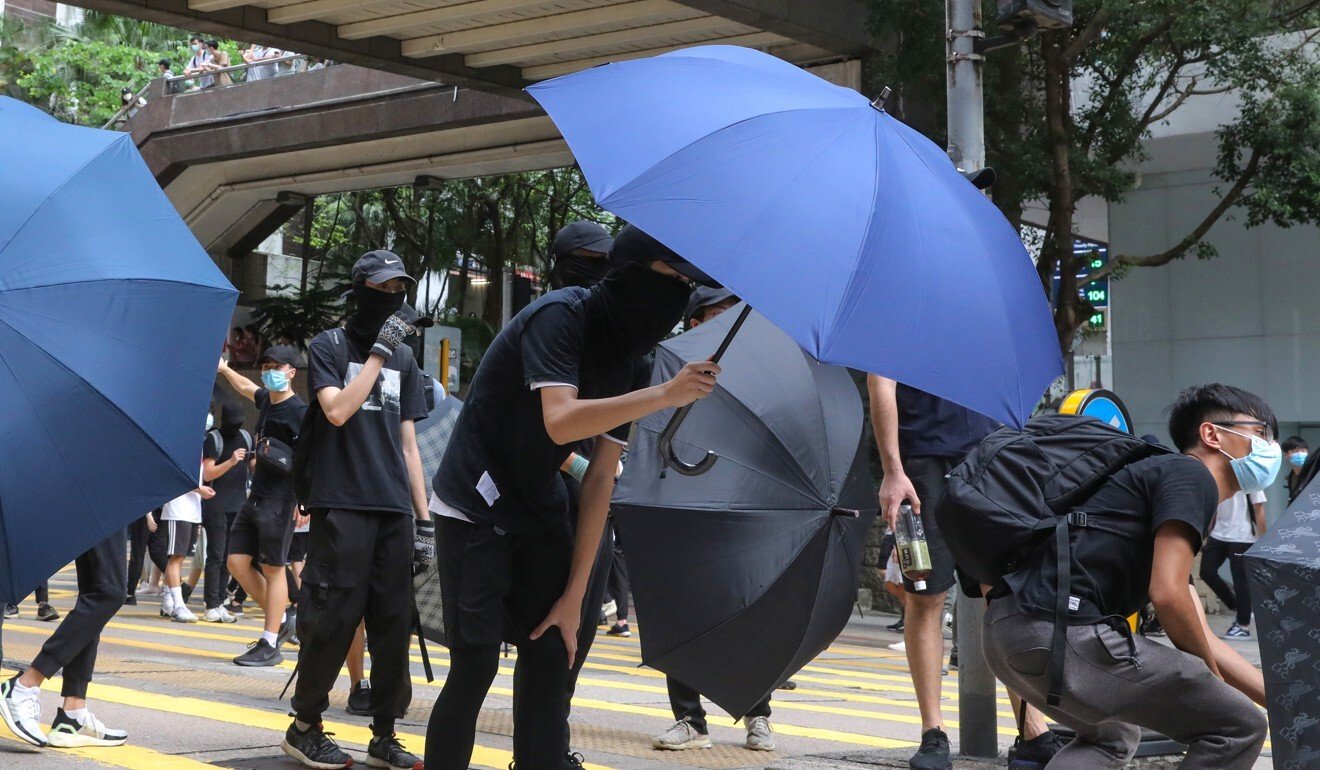
National security law: Hong Kong protests weren’t sustainable, but no guarantee new legislation stops them, says ex-Morgan Stanley Asia head
- Stephen Roach, now at Yale’s Jackson Institute for Global Affairs, hopes new legislation will not have adverse effect some in West fear
- Former investment banker also suggests US politicians will have multiple reasons to keep Hong Kong issues front and centre
Professor Stephen Roach, ex-Asia chairman of the US investment bank and now a senior fellow at Yale University’s Jackson Institute for Global Affairs, told a webinar the instability seen in the streets of Hong Kong over the past year was not sustainable.

“The Hong Kong government was not able to control the demonstrations. So there is now a new legal framework … It’s not clear that will work either,” he said, referring to the national security legislation promulgated by Beijing on June 30.
“I am hopeful the situation will be more stable and that Hong Kong’s long-term role as a major international centre will not be as adversely impacted as some in the West fear,” he added.
The national security law, introduced late last Tuesday evening, aims to prevent and punish acts of secession, subversion, terrorism and collusion with foreign forces, with life imprisonment the maximum penalty.
Hong Kong national security law: read the full text
The legislation was announced, drafted and passed by top Chinese lawmakers in a little over a month. Washington has joined critics and opposition politicians in the city in warning that the law would erode the city’s autonomy and freedoms under the “one country, two systems” principle.
Last week, the United States suspended regulations allowing Hong Kong to import US tech, citing security risks posed by the legislation, and warning further sanctions were on the table in regard to the city’s preferential trading status.

Roach predicted the mounting pressure between US and China was likely to be an enduring feature of the post-pandemic world and that the city’s affairs would continue to be discussed by American politicians.
“In a period where the Trump administration is in serious trouble, not just for Covid … the Hong Kong issue will get highlighted even more by partisan US politics,” he said.
Hong Kong national security law English-language version:
On the future of the US dollar, the economist foresaw the greenback dropping by 35 per cent on a broad trade-weighted basis because of the weak domestic saving rates and exploding budget deficits.
“That would be the dollar against a large group of our trading partners in inflation-adjusted terms, and I think it will occur over the 2020 to 2021 period,” he said.
But he said this would not bring an end to the dollar dominance as the world’s reserve currency.

